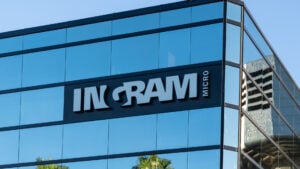Legacy ERP systems urgently need to be migrated to more modern versions and systems. This presents companies with major challenges. We spoke about this with Fabian Czicholl, Regional Vice President at Appian.
Mr. Czicholl, SAP has announced that it will no longer support older ECC versions from 2027, which means that many migration and transformation projects to SAP S/4HANA are underway. This poses major challenges for some companies. What problems are they facing from your perspective?
Fabian Czicholl: Time and again, we find that legacy systems have been customized to such an extent over the years that a standard no longer exists. In the past, these individual ERP enhancements have given companies a competitive edge, but at the same time have meant that updates are not possible without a standardized core. When migrating to SAP S/4HANA, for example, companies do not want to repeat this mistake and want to keep the SAP core “clean” so that upgrades remain possible in the future.
But how can the individuality and agility of ERP systems be maintained?
Fabian Czicholl: A legitimate question, because there are good reasons why this should continue to be possible. Let’s take the Supply Chain Due Diligence Act as an example.
This has not only caused a few headaches for supply chain managers, but also for IT, which must be able to map new governance and compliance regulations in its architecture. The dilemma is illustrated by the fact that even small software companies offer a wide range of add-on solutions for prominent ERP systems . The EU is now set to introduce much stricter supply chain legislation, which will overwrite the German law. This will inevitably mean that processes in companies’ IT departments will have to be revisited and optimized.
What do you mean that?
Fabian Czicholl: Many peripheral processes and systems are largely spreadsheet and email-based, which makes collaboration with suppliers and adherence to governance and compliance regulations more difficult. In addition, managing complex relationships with service providers requires extensive due diligence. Companies must ensure compliance with complex, multidimensional sanctions checks depending on, for example, region, product category and order volume, and minimize business risk. Many different departments work together here, sometimes at a very individual case level.
However, the often manual processing makes processes slow, non-transparent and inefficient. It also increases the risk of human error. This can be fatal for complex business processes in supply chain management under the condition of changing regulations.
And the updates of the ERP systems by the manufacturers don’t help?
Fabian Czicholl: That would only help to a limited extent, because the required individuality is often too small for the standard updates at the core. From the perspective of the large ERP providers, such updates are not worthwhile, so either niche providers step into the breach or the ERP is adapted accordingly.
As many companies are currently busy with the ERP migration, such functional enhancements are paused. In addition, during the migration phase it usually becomes apparent that a bridge needs to be built between the old and new systems in the IT architecture.
It takes people as users of these technologies to control and counteract them.
Fabian Czicholl, Appian
How can this work?
Fabian Czicholl: By using a platform with high integration capability, which is crucial, for process orchestration. Such a platform can be docked onto the existing systems as an “agility layer”, regardless of what the underlying systems do or how old they are. Different data sources are connected with each other, which can be flexibly exchanged during an ongoing migration.
At Appian, we use our platform to orchestrate process variations across systems, which creates transparency and contributes to efficiency. That would be the first step. If you add process automation, it fundamentally changes the way companies communicate with vendors and suppliers.
Can you give us an example?
Fabian Czicholl: If you link the data sources of the ERP systems and automate the case handling processes, you get dynamic ad-hoc workflows that automatically forward events for review and processing. With the workflow functions, you can monitor every step of your individual case, take countermeasures if necessary and make it more efficient. Our case management platform supports the creation and management of business rules and allows case handlers to instantly adapt processes to new situations.
Connecting various sanctions lists or compliance providers for due diligence, for example, minimizes the aforementioned business risk. All of this also helps with adherence to compliance rules, which brings us back to supply chain laws. A lot is possible. Fast and flexible in application and design with a modern user interface that is also immediately available on mobile devices. The rapid implementation also results in a fast ROI for companies.
Let’s move on to artificial intelligence. Surely you use it too, right?
Fabian Czicholl: Of course. Intelligent Document Processing (IDP) as an example of artificial intelligence has played a major role in our technology toolbox for years. AI, specifically machine learning, can, for example, convert unstructured data into structured data or automatically classify documents. The latest developments in generative AI and large language models are further technological advances that also help us in process automation. However, when it comes to the use of providers such as OpenAI or Google, I would like to vehemently point out the possibilities of private AI.
Could you please explain this in more detail?
Fabian Czicholl: At best, AI models should only be trained with the company’s own data and third parties should be denied access to this data. No company wants to train external AI models with its company data. A private AI prevents this entirely in terms of data protection and the corresponding policies. Incidentally, all Appian AI services are private AI services.
And where is the human element in all this process automation, including through AI?
Fabian Czicholl: People remain an integral part of technological progress. Keyword: human in the loop. People are needed as users of these technologies in order to control and counteract them. At the same time, process automation frees employees from meaningless, repetitive tasks, as these can be taken over by a bot and a program. In this way, Appian makes it possible to free up time for the more valuable activities to be carried out by well-trained experts. This creates added value at a time when experts are scarce due to a shortage of skilled workers.
Mr. Czicholl, thank you for the interview.




